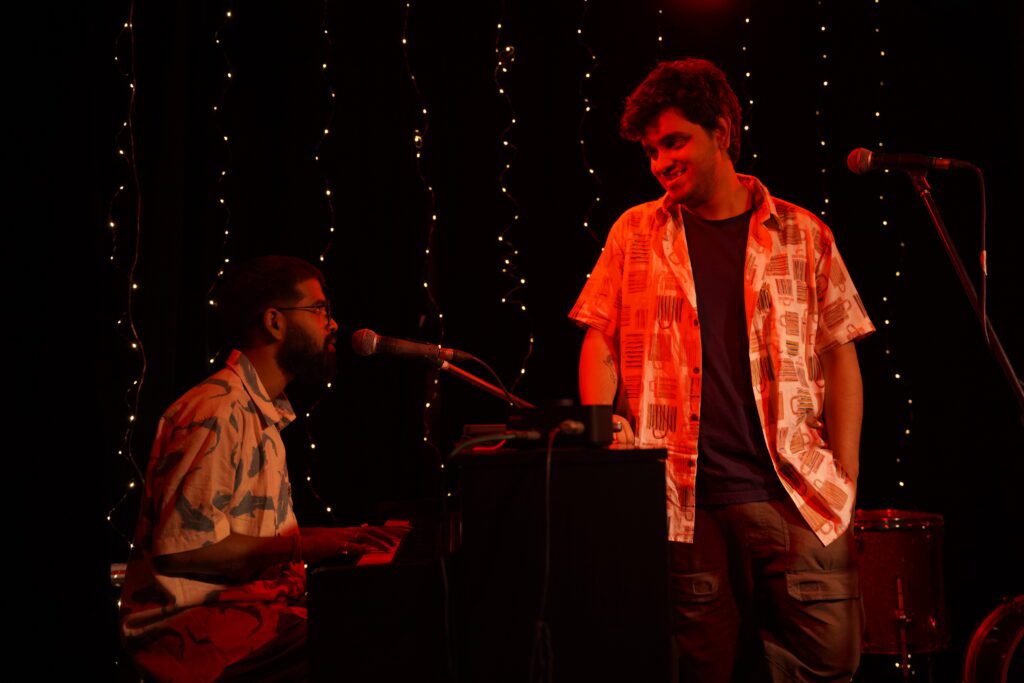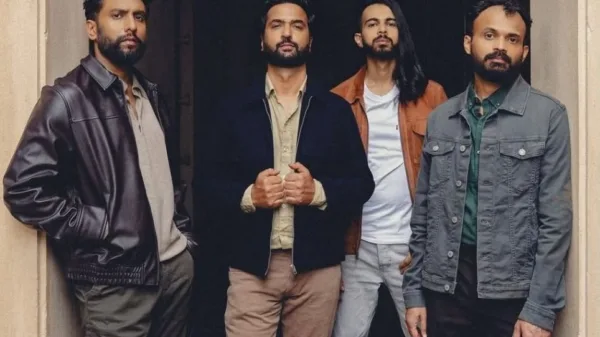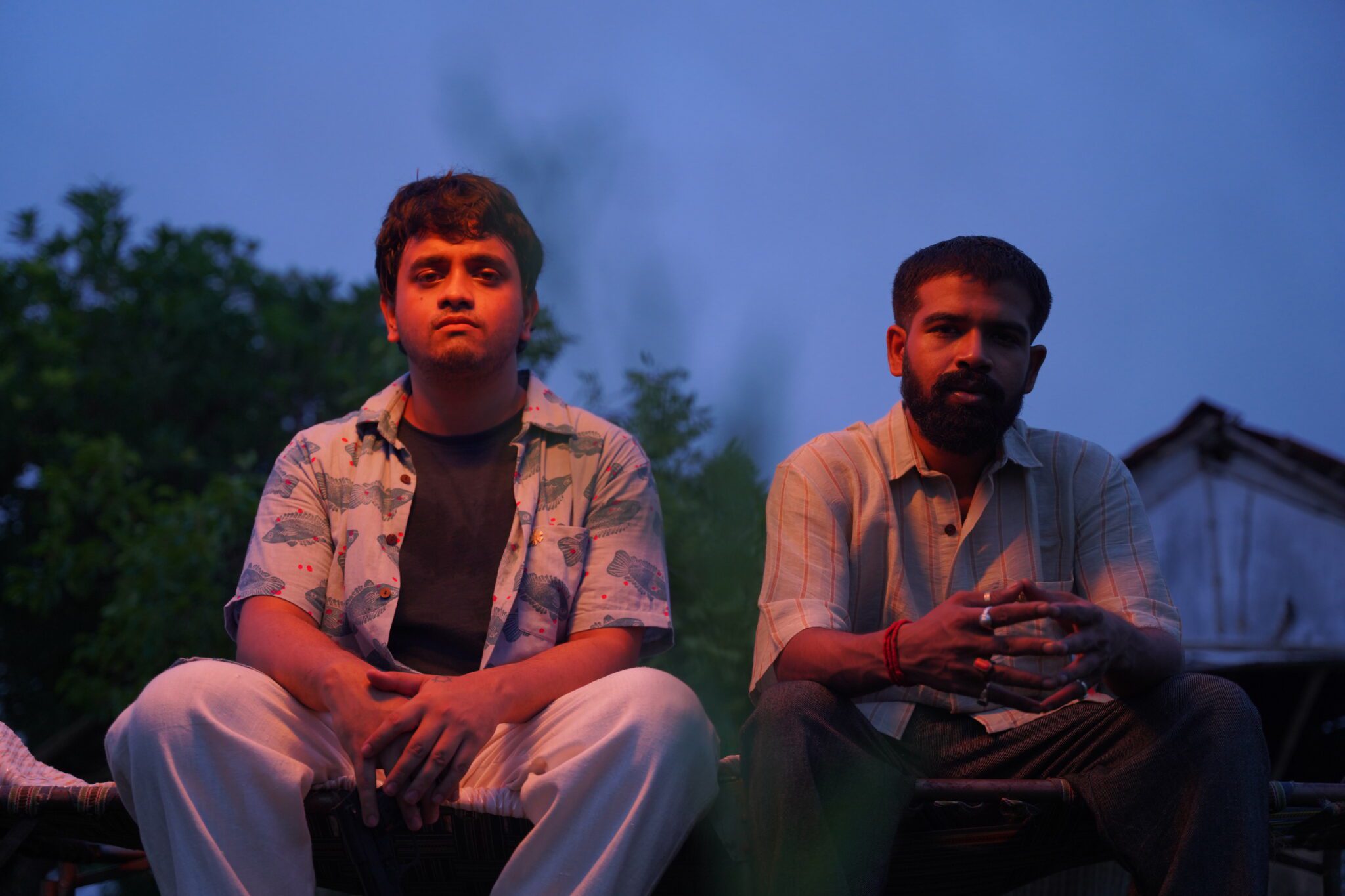I listen to Dindūn, Vol. 3 on my way to my 9 AM university lectures. I do not stumble upon it — instead, choose to play it from my ever expanding list of projects I meander around getting to listen all year and only finish half of. While running up a road that loops around a hospital, I realize that the record is in Bengali and Sylheti, an interspersal of languages long forgotten once the old-people-evening-convention at my suburban home disappeared with the foreseeable advent of death and disease. What had started as a bedroom project for the singers Sourjyo Sinha and Rohit Ganesh, takes the form of a crowdfunded venture that cover production, administration, collaboration costs and the like.
“In contrast to their earlier work, their upcoming EP delves into urban themes, both sonically and lyrically while building on the scenic sounds and imageries in an urban context. Consisting of four tracks, this EP seeks to explore the evolving urban landscapes of Silchar and Kolkata through the perspectives of Sourjyo and Rohit. The compositions intricately blend industrial and rock elements, interwoven with their folk origins, thereby portraying the urban environment in Sylheti and Bengali. Through their music, they reflect upon the contemporary influences on culture, language, and identity,” — their press release states, thus giving me an idea of what to expect.The EP manages to strike a rare bullseye that is uncommon when it comes to artists describing their new projects — they are precise in their description of each track, and deliver exactly that. The promised industrial and rock elements seep into each other, blending out and separating into dreamy, sometimes congruent, sometimes dissonant soundscapes which situate your brain into a wonderful brain fog that remains pleasurable throughout the record.

Chorai, the first track, is almost post-rock in its essence, a synthesis of indie darlings Mac Demarco, Dreamgirl and perhaps even The Strokes with Sinha crooning “Chorai, kunano kunano jaao?” [Where do you go, leaving us, dear sparrow, where?] into your ear. If Chorai is the revving of the metaphorical engine of the EP vehicle, the pace is picked up by Tungsten. The guitar is an instrumental standout — and Prarthana Sen’s vocals are beautiful. A clear indie-rock number, its drum progression is its most fun component — and the lyrics, distilled down to an intentional simplicity, yet allowed the sharpness of a knife make gentle incisions across your sonic sensibilities — ending with “Ami toh bhitorou khali/baaire alo nai/bodlaibar offekhay”, (which translates to “I feel so hollow/And there is no light on the outside/Still waiting for some change to come”.)
The standout, for me, in the album, has to be Cotton Green, and I would argue that this has nothing to do with my recent move to Mumbai. Dindūn describled the track as follows : “Named after a station in Mumbai, “Cotton Green” is a blend of simple melodies that reminds us of green valleys in the hills juxtaposed with distorted melodies that resemble heavy machinery from factories and offices and draws influences from works of AR Rahman, and becomes their way of including the spirit of Bombay, where the song found its birth.”
The track lets go of the auditory momentum that it had built with the preceding tracks, coming down to a twinkly synthy arrangement, which I feel becomes a necessary departure from the more complex, rich arrangements on the rest of the album. It is more soundtrack and less song, and this adds to its advantage.
The EP ends with Aao Gia, continuing in the same vein and makes for a wonderful goodbye song. The lyrics on this one are beautiful — and one can see why the duo have branded themselves as a “synth folk” duo. They are primarily drawn from lyrical tradition of Bengali/Sylheti/Assamese folk music traditions, as exemplified by the following : Aamar pushkuni’t naijol / aamar badol’o nai paani/Tumi koriyo iraid,kundin hoito khuwaab’o ami nai / Aao gia (My pond holds no water anymore, the clouds above empty of rain/ Remember me then/Else someday I might cease to exist). What does not get to the non-speaker of the languages the album is sung in, is the untranslatability of its diction. Perhaps that is an exclusive gift for people who understand, and for the rest to nudge through the other feelings and assume the acquired taste. Dindūn, Vol. 3 is a solid project. 4 tracks inform the listener of a thought out record that navigates personal and collective sensitivities, trying to etch a sort of baul-ised Sufjan Stevens. What concerns me about this project, is although composite, it feels structured yet incomplete. It follows a step by step movement but at some places, it comes across as enforced, rather than natural — which is counterintuitive to the thesis of this project in itself. The soundscape also leaves a few well suited spaces for further experimentation, which the outfit have the capability to make use of, as exhibited by this record in itself. This, however, excites me for their work in the future, to see what they do to develop what they have set the ball rolling on.


























